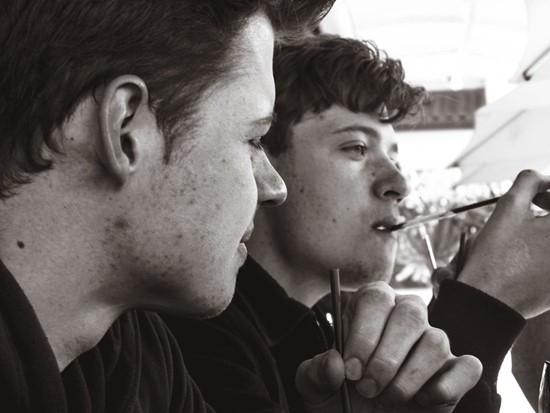A Twin Bond or Bondage?
Parents of twins often remark that one twin will snitch on the other—informing mom and dad, reliably or not, about what his twin is up to. For instance, an incident may have occurred on the playground that the other sibling witnessed or participated in. Either way, knowing exactly what occurred and to whom is often challenging for parents.
Later on, as twins reach adolescence, they often become either partners in crime or informants on one another. Parents are put in a difficult position. While they relish being in the know, at the same time, they are jeopardizing their relationship with the nontattling twin. Moreover, these dynamics impact the twins’ relationship as well. It can be devasting to realize that one’s trustworthy twin has defected to the parental enemy camp.
I spoke briefly with a mom of adolescent identical twin boys who are trying to navigate this slippery slope. She described one of her sons as more of a rule follower and her other son as more of a risk taker and free spirit. The free-spirited son has told his mom that he hates being a twin. He assures her that this has nothing to do with not loving his brother. In fact, the twins are close. However, his dilemma is that he cannot be his own person. Couple this with the fact that most people cannot distinguish him from his brother, and he feels frustrated that he cannot freely act in accordance with his own wishes. First, he worries that his actions may reflect poorly on his twin since practically everyone views the pair as one person. Second, he often feels that his brother is closely watching him and preventing him from engaging in behaviors that his twin frowns upon.
This youngster seems imprisoned within his twinship due to his worries about alienating his brother. Sadly, his wish to strike out on his own is thwarted. Often, these unarticulated feelings unknowingly lead to conflict that results in twins harboring excessive resentment toward one another. This teen’s perspicacity in acknowledging the effects of the twin dynamics rather than demonizing his brother demonstrates remarkable insight.
Image courtesy of Alexandra E Rust (CC BY 2.0)



So true, Parents can find it very difficult to take themselves out of the twin loop and let the twins sort out their own differences by themselves, particularly if they were in the habit of doing so when the twins were young. The twins themselves can find it very difficult not to ask parents for sympathy or adjudication as to who is in the wrong! They may need the help of an impartial twin therapist to talk things through together without emotions running high. Those who find their way to Dr. Joan Friedman are indeed lucky. Audrey Sandbank Twin Therapist, Reigate, UK.
Once again, joan, such amazing understanding of the twin dynamic! Just love your articles and look forward to them all the time!!!